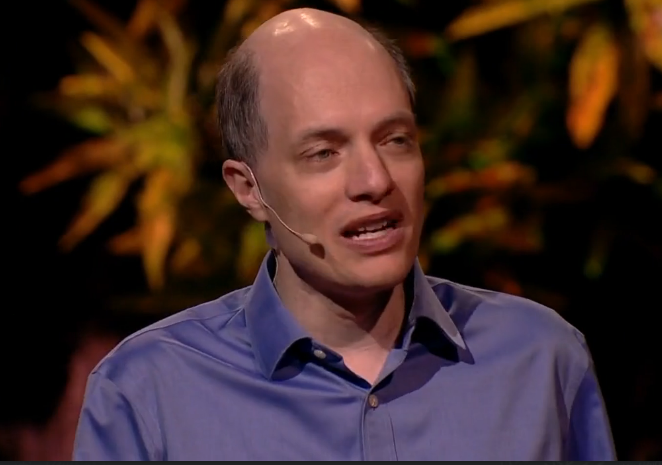(单词翻译:单击)
演讲文本
If you went to a top university -- let's say you went to Harvard or Oxford or Cambridge --
如果你去顶尖学府,像是哈佛,牛津,或者剑桥
and you said, "I've come here because I'm in search of morality, guidance and consolation;
然后你对他们说,"我想找到指引,慰藉,和道德"
I want to know how to live," they would show you the way to the insane asylum.
"我还想知道怎么好好生活",那些大学会让你去神经病医院
This is simply not what our grandest and best institutes of higher learning are in the business of.
品德,慰藉,指引根本不是那些大学所管辖的
Why? They don't think we need it.
为什么呢,因为他们觉得我们不需要那些
They don't think we are in an urgent need of assistance.
他们觉得我们不需要援助
They see us as adults, rational adults.
他们觉得我们是有逻辑讲道理的大人
What we need is information.
他们觉得我们只需要信息
We need data, we don't need help.
只需要资料,根本不需要帮助

Now religions start from a very different place indeed.
而宗教就完全不一样了
All religions, all major religions, at various points call us children.
所有主流的宗教都把教徒看成是个孩子
And like children, they believe that we are in severe need of assistance.
就像孩子一样,宗教相信我们十分急切地需要他们的援助
We're only just holding it together.
我们已经在了崩溃的边缘
Perhaps this is just me, maybe you.
可能只有我是这样,或许你也是这样
But anyway, we're only just holding it together.
但不管怎样,我们都在边缘线上
And we need help. Of course, we need help.
而且我们无疑需要帮助
And so we need guidance and we need didactic learning.
所以我们需要指引,需要言教
You know, in the 18th century in the U.K.,
在十八世纪的英国
the greatest preacher, greatest religious preacher, was a man called John Wesley,
有个最伟大的传教士叫做约翰·韦斯利
who went up and down this country delivering sermons, advising people how they could live.
他在全英国到处传教,建议人们怎样好好生活
He delivered sermons on the duties of parents to their children and children to their parents,
他传道说教,告诉父母如何对待小孩,告诉孩子如何对待父母
the duties of the rich to the poor and the poor to the rich.
也告诉富人穷人如何相互对待
He was trying to tell people how they should live through the medium of sermons,
他用说教的方式去告诉大家如何去生活
the classic medium of delivery of religions.
这是说教最传统的方式
Now we've given up with the idea of sermons.
现在我们摒弃了说教的方式
If you said to a modern liberal individualist,
如果你对一个现代自由的个人主义者说
"Hey, how about a sermon?" they'd go, "No, no. I don't need one of those.
"嘿,去布道怎么样",他们会说 "我才不要呢"
I'm an independent, individual person."
"我是个独立自主的个体"
What's the difference between a sermon and our modern, secular mode of delivery, the lecture?
但是宗教里的布道和平时现代的讲课演讲到底有什么区别呢
视频及简介
演讲简介:
无神论者应该如何对待宗教?阿兰.德波顿提出了一种"无神论的宗教"--名为无神论2.0,其中包括了宗教中的传统仪式, 人与人之间的互相依赖,以及人们对超凡脱俗的需要。


